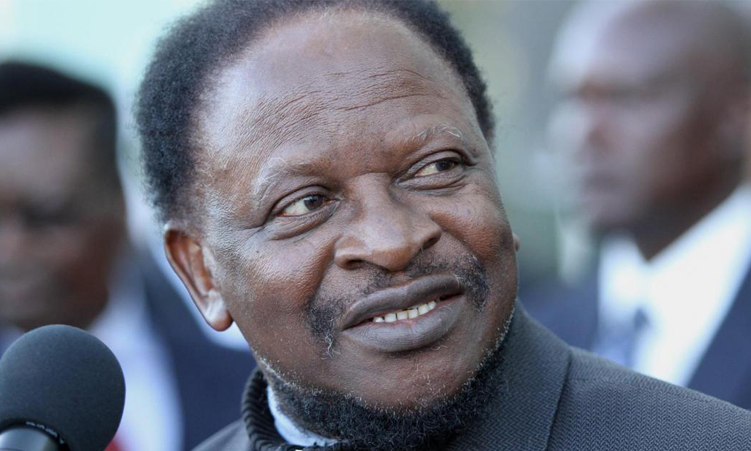The National Assembly yesterday passed the private member’s bills introduced by Swapo lawmaker Jerry Ekandjo to define the term spouse and amend the Marriage Act of 1961.
Ekandjo on Thursday last week introduced a bill on the definition of a spouse, which seeks to explicitly define the term spouse, invoking articles 81 and 4 of the Namibian Constitution to contradict a decision of the Supreme Court of Namibia on same-sex marriage.
He also tabled a bill to change sections of the Marriage Act, including to define the terms marriage, same-sex marriage and spouse. The bill further seeks to prohibit same-sex marriage, prohibit the solemnisation of same-sex marriages, and to deny the recognition of same-sex marriages.
The bills were passed with minimal amendments and were overwhelmingly supported by both sides of the house.
The definition of spouse bill sailed through the committee stage without objection.
However, Ekandjo rose to suggest an additional amendment that clarified that men are genetically born males, whereas women are genetically born females.
The marriage amendment bill makes provisions to define marriage as a “a legal union entered into between persons of opposite sex”. The bill goes on to define a spouse as a partner in a marriage between people of the “opposing sex”.
The bill further seeks to prohibit same-sex marriage, by stating that “a person may not enter into a contract of marriage with a person of the same sex”.
Some members of parliament, however, expressed worry over a part of the bill that criminalises the solemnisation, advocacy and propagation of same-sex marriage.
That part of the bill reads: “Any marriage officer who purports to solemnise a marriage which he or she is not authorised under this act to solemnise, or which to his or her knowledge is legally prohibited, and any person, not being a marriage officer, who purports to solemnise a marriage or witness, promote or propagate same-sex marriage, commits an offence.”
The bill further states that anyone who violates the law against same-sex marriage faces a fine of up to N$100 000 or up to six years in prison.
According to Popular Democratic Movement (PDM) lawmaker Inna Hengari, the bill’s section forbidding the witnessing, promotion or propagating of a same-sex marriage is problematic and needs to be rewritten because it violates the right to express oneself.
“Who gets to determine that I am promoting same-sex marriage?”
Hengari said the section was against the right to freedom of expression.
PDM deputy chief whip Maximalliant Katjimune backed Hengari, saying the section is not in the spirit of Namibia’s Constitution.
However, these concerns were brushed aside, and the bill was agreed to with an amendment from Swapo lawmaker Sebastian Karupu, who suggested that the word “may” in the section saying a person may not enter into a contract of marriage with someone of the same sex be replaced with the word “must”.
Karupu said the word “may” is optional and could be misinterpreted by the courts.
“We must close all the loopholes,” he said, to the delight of the whole house.
PDM lawmaker Vipuakuje Muharukua praised Ekandjo and complimented him for his bravery, describing Ekandjo as a hero to many Namibians.
Muharukua also urged the former youth minister to introduce another private member bill that would limit the recognition of transexual people.
He spoke of instances where some Namibians go overseas as men and come back as women, adding that there is a need to criminalise sex changes.
Ekandjo remarked that he was “doing it for the sake of Namibians, to protect the territorial integrity and independence of the whole nation”.
Ekandjo has been on a warpath since the Supreme Court’s ruling on same-sex marriage.
Two months ago, the Supreme Court ruled against the home affairs ministry’s refusal to recognise spouses in two same-sex marriages validly concluded outside Namibia for immigration purposes in terms of the Immigration Control Act of 1993.
The court found that the ministry’s stance infringed on the rights to dignity and equality under Namibian law of two foreign nationals in same-sex marriages with Namibian citizens.
Following the court ruling, Ekandjo introduced a motion in parliament rejecting the ruling, claiming he did not go to prison on Robben Island to promote homosexuality in Namibia.
The bills yesterday approved by the National Assembly will now be sent to the National Council for review.
Stay informed with The Namibian – your source for credible journalism. Get in-depth reporting and opinions for
only N$85 a month. Invest in journalism, invest in democracy –
Subscribe Now!






